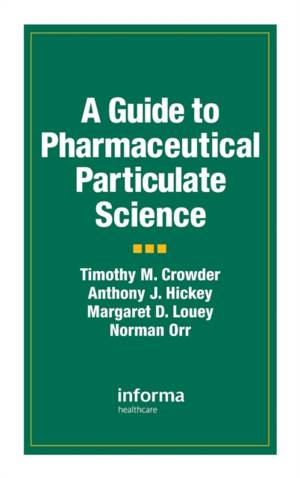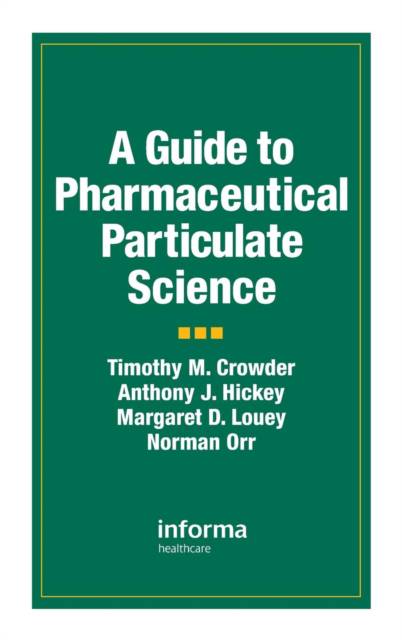
- Retrait gratuit dans votre magasin Club
- 7.000.000 titres dans notre catalogue
- Payer en toute sécurité
- Toujours un magasin près de chez vous
- Retrait gratuit dans votre magasin Club
- 7.000.0000 titres dans notre catalogue
- Payer en toute sécurité
- Toujours un magasin près de chez vous
A Guide to Pharmaceutical Particulate Science
Anthony J Hickey, Timothy M Crowder, Margaret D Louey, Norman Orr
335,95 €
+ 671 points
Description
The pharmaceutical applications of powder technology have long been recognized. Yet while many books focus on aspects of powder formation and behavior, there has been no text that explores the power of particulate science in the design, manufacture, and control of quality medicines. Until now. A Guide to Pharmaceutical Particulate Science discusses key principles of particulate science and their practical applications. The authors cover particulate material, its form and production, sampling from bodies of powder, particle size descriptors and statistics, behavior of particles, instrumental analysis, particle size measurement and synergy of adopted techniques, physical behavior of a powder, and in vitro and in vivo performance criteria. They draw the components of particulate science into a single concise description of their current and potential uses in product development. Exploring the growth in knowledge of particle properties and the variety of technological advances in particle manufacture, A Guide to Pharmaceutical Particulate Science gives readers the tools they need to grasp the science and its use in the industry.
Spécifications
Parties prenantes
- Auteur(s) :
- Editeur:
Contenu
- Nombre de pages :
- 256
- Langue:
- Anglais
- Collection :
Caractéristiques
- EAN:
- 9781574911428
- Date de parution :
- 12-03-03
- Format:
- Livre relié
- Format numérique:
- Genaaid
- Dimensions :
- 156 mm x 234 mm
- Poids :
- 535 g

Les avis
Nous publions uniquement les avis qui respectent les conditions requises. Consultez nos conditions pour les avis.






